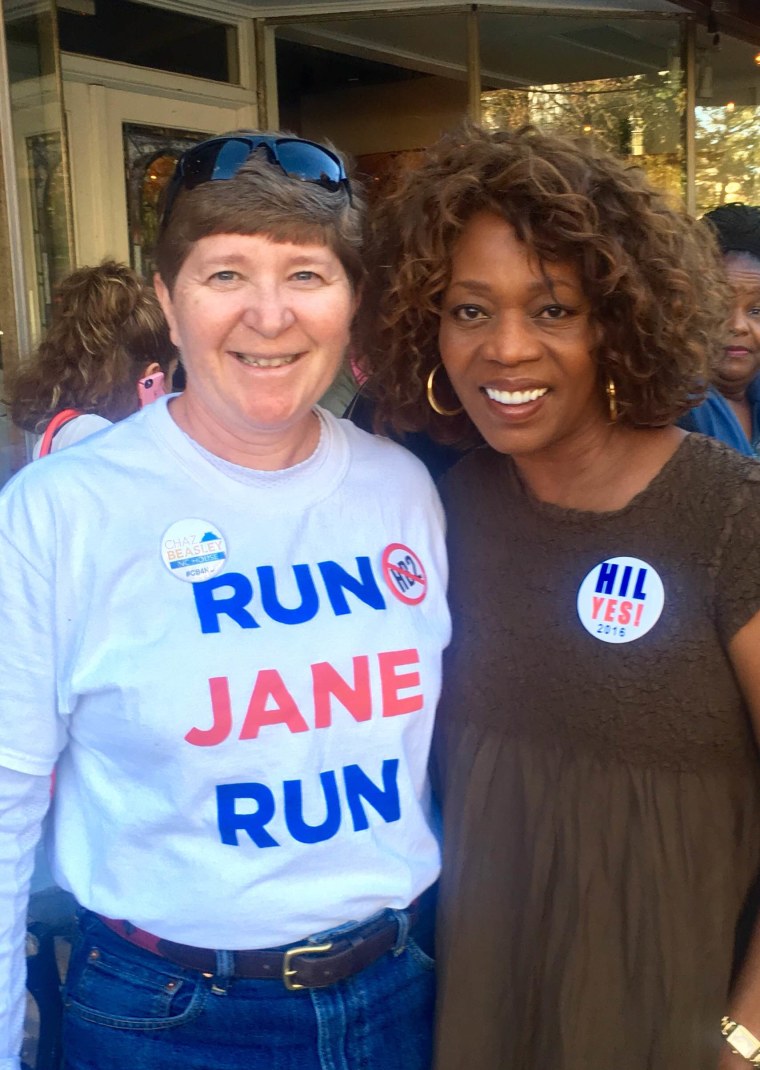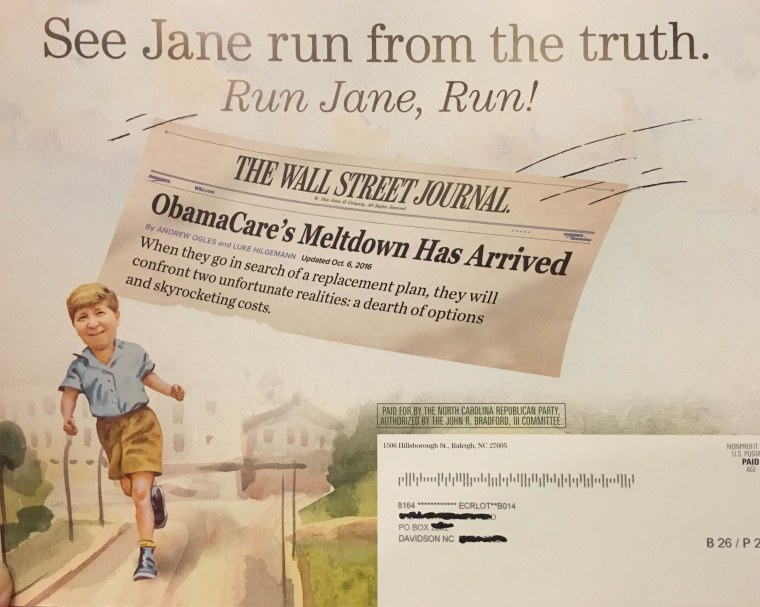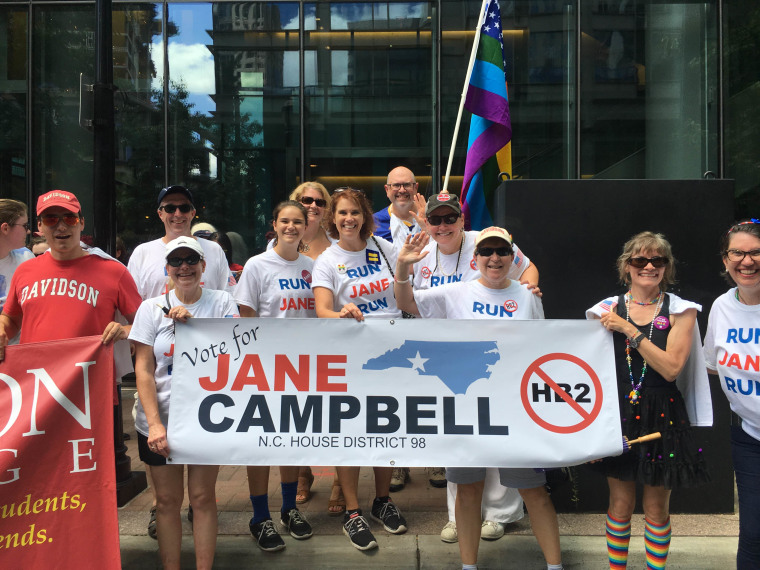The past few years have seen a significant extension of LGBTQ rights in the United States, and both major parties have made explicit overtures to the LGBTQ community. However, this election season has not passed without instances of anti-LGBTQ legislation and rhetoric.
The most well publicized example of anti-LGBTQ legislation was the passage of House Bill 2 (HB2) in North Carolina -- and its rigorous public defense by several politicians. And for some LGTBQ candidates, hateful rhetoric continues to be mobilized and personalized by those who wish to discourage their political ambitions.
'Lack of Tolerance' and 'Homophobia' on the Campaign Trail
Justin Chenette, a Democrat, is running for District 31 of the Maine State Senate. Asked to run by the retiring Democratic incumbent, he was initially unopposed. Then in July, York County Republican Committee Chairman Jim Booth sent an email soliciting a volunteer to run against him. The email referred to Chenette as “Little Justine” and stated “There is a lot of HATE for the Democratic nominee.”

“The hate part really sunk in for me,” said Chenette, who characterized Booth’s email as “using hate as a recruitment tool.” And in this election cycle, Booth's wording may sound familiar: “Calling me 'Little Justine,' [reminded me of] what Trump said about ‘Little Marco,’” Chenette added, referring to Donald Trump’s remarks about Senator Marco Rubio in a March GOP presidential debate.
“It really got at a very dangerous vein in the Republican party—nastiness, negative personalization of politics that stems from the top of ticket. Negativity that trickles down, empowers peoples’ negative behaviors,” Chenette said. “I think it’s important for this to be called out. Not to defend me, but to send a message that this type of politics is not acceptable."
This was not the first time Chenette encountered hate and negativity in politics, nor would it be the last. In 2012, when he first ran for a seat in the Maine House of Representatives, some of his signs were spray pained with "derogatory words." And just last week, one of his campaign mailers was returned with the words "We do not support sodomites!!" written on it.
"We have come so far, but we have so far to go. We need to work on issues of homophobia and really a lack of tolerance," Chenette said. Though he is quick to remark on the amount of support he has received: “So many voices have come out against this behavior, voices saying ‘This is not who we are.’”
It's not just discriminatory rhetoric that Chenette is battling in his home state -- it's also a series of anti-LGBTQ legislation.
RELATED: Election of LGBTQ Officials Has Broad Impact, Study Finds
Last session, Maine saw a “Religious Freedom” bill introduced into the Statehouse. “I like to call it the 'discrimination bill,'” Chenette said. “[The bill is] an excuse to discriminate against people. It’s not only anti-LGBT, but also anti-women, anti-just-about-everything-else -- including religion.”
“I am all for making sure people have a constitutional right to practice their religion but we can do that without saying businesses can legally discriminate and segregate based on who we are,” Chenette added.
While the bill ultimately failed, Chenette said he expects there to be another "religious freedom" bill next session. "That’s why elections matter. We have to be vigilant," he said.
HB2 Looms Large in North Carolina
Recent polls have incumbent Republican Governor Pat McCrory—proponent of HB2—neck and neck with Democratic challenger Roy Cooper. Public backlash against the bill may cost McCrory the Governor’s mansion.
And HB2 is also casting a shadow over local races, too. John R. Bradford III, incumbent Republican in North Carolina’s 98th district, was among the legislators who introduced HB2.

Enter Jane Campbell. A retired Navy Captain, Campbell had no experience with politics. Campbell recounted the decision to relocate to North Carolina three years ago with her wife. “We had to give it slight pause,” she said, “because despite marriage license, we were coming back to North Carolina where we had no legal standing because Amendment 1 [banning same-sex marriage] was in place. When SCOTUS struck down DOMA, we stood there clapping in front of the television. All is well, we thought. We are now recognized in our own state. What else could happen?”
“Then in one day,” she said, “we watched HB2 unfold. In one singular day.”
Bradford was their local representative, and running opposed at the time. “What do we do? How do we hold this guy accountable for the most discriminatory legislation in decades?” Campbell said.
The deadline had passed for Campbell to run as a Democrat, so she had no choice but to run unaffiliated. “I basically had six weeks to get 4 percent of the registered voters—2,390 signatures, not an insignificant number.” Campbell gathered more than 2,800 and was permitted to run for office.
RELATED: Will 2016 Be a Watershed for LGBTQ Women in Politics?
The passage of North Carolina’s HB2 has come at tremendous cost for the state, according to Campbell. “I think you look at the cost in terms of multiple things: jobs, economic impact overall, and I don’t say it lightly, but the state’s reputation. Countries like Great Britain put out a travel advisory to its citizen not to travel to our state. And that’s what we hear when talking to voters. They are well aware of the impact.”
In terms of the impact of HB2 on elections in North Carolina, Campbell said, “I think it has opened wide the door. There is a considerable amount of anger at our Governor, and Ronald Reagan-style Republicans can’t bring themselves to vote for Donald Trump.”
Campbell told NBC OUT she has encountered prejudice herself during the campaign. Almost as an afterthought, she remarked on a mailer she believes was distributed by her opponent. In the mailer, Campbell’s head is transposed upon the cartoon figure of “Dick,” the male character from the popular readers widely used in the United States from the 1930s-1970s, with titles such as “Fun with Dick and Jane.”

“I tried to play it off, be the glass-half-full person, try to be nice," Campbell said, with a palpable sense of hurt. Rather than criticize Bradford directly, Campbell recalled what friends had said about the image and why it troubled them. One friend, a professor, told her it was an instance of “homophobic and transphobic dog whistle politics.”
In response, Campbell supporters have dawned t-shirts with the slogan “Run Jane, Run.”
Like Chenette, Campbell stressed the importance of LGBTQ presence in elected office.
“The next time somebody tries to present a bill like HB2, I can stare them down and say ‘Who gave you the right to discriminate?’ Having allies is wonderful, but you have to have a seat at the table," Campbell concluded.
Julie Moreau is a Post Doctoral Research Fellow in the Department of Women's, Gender and Sexuality Studies at Washington University in St. Louis. She tweets at @JEMoreau.
